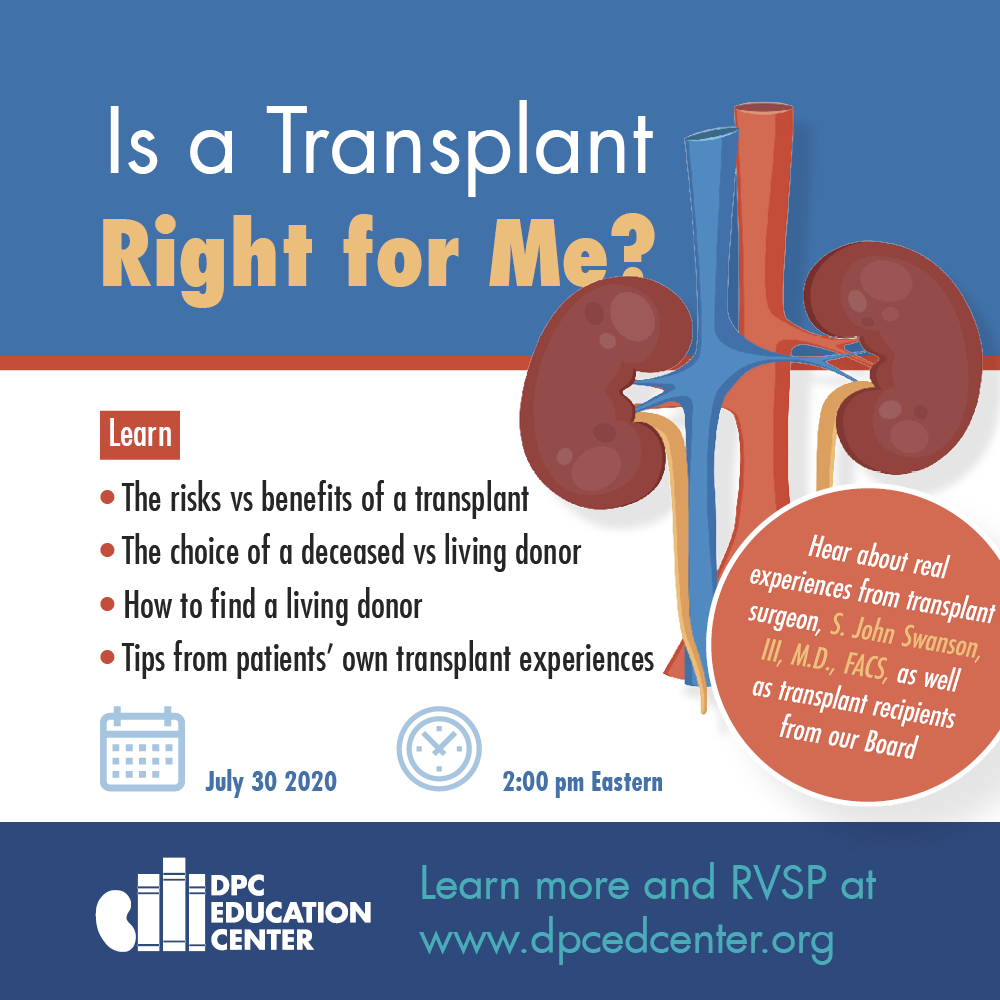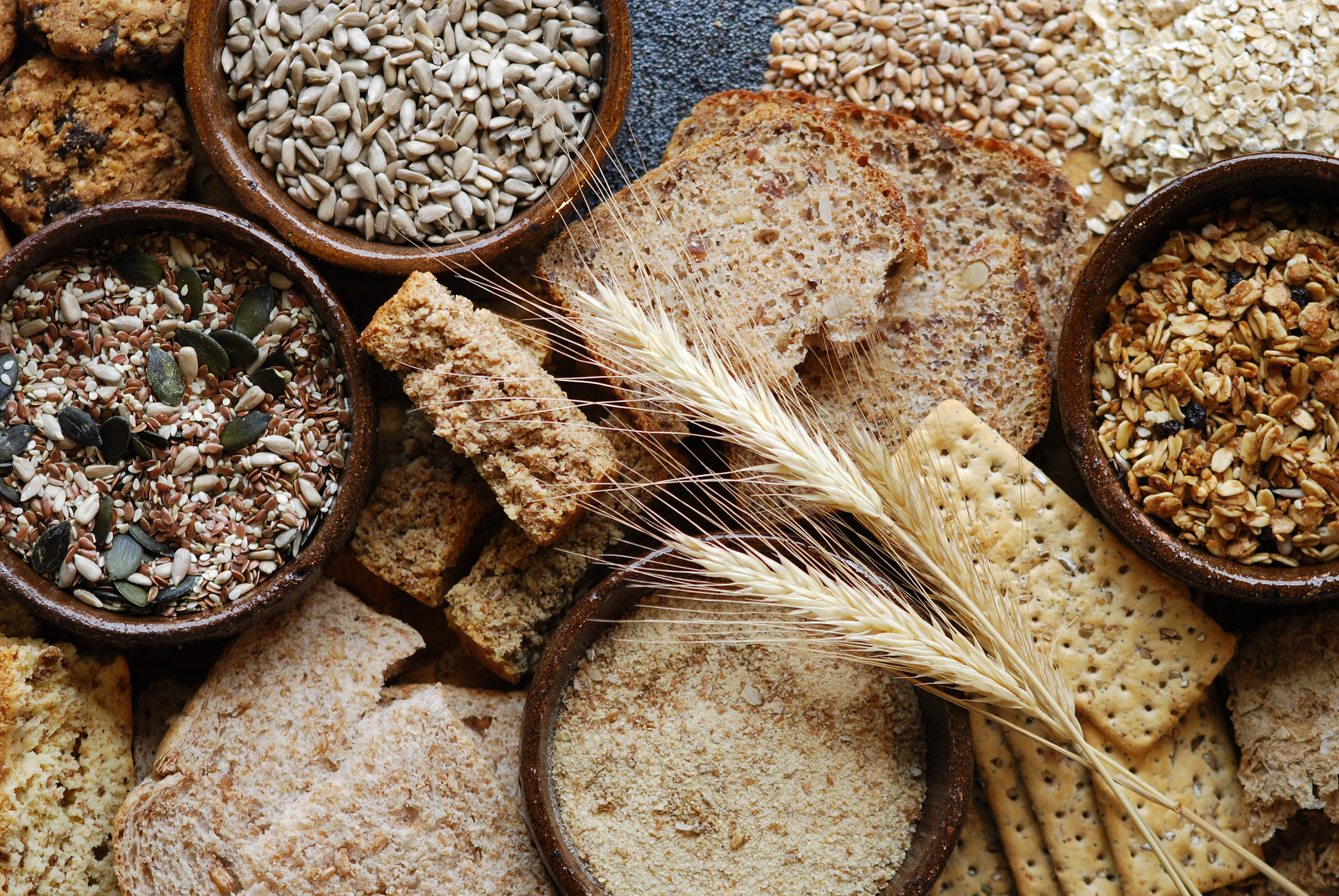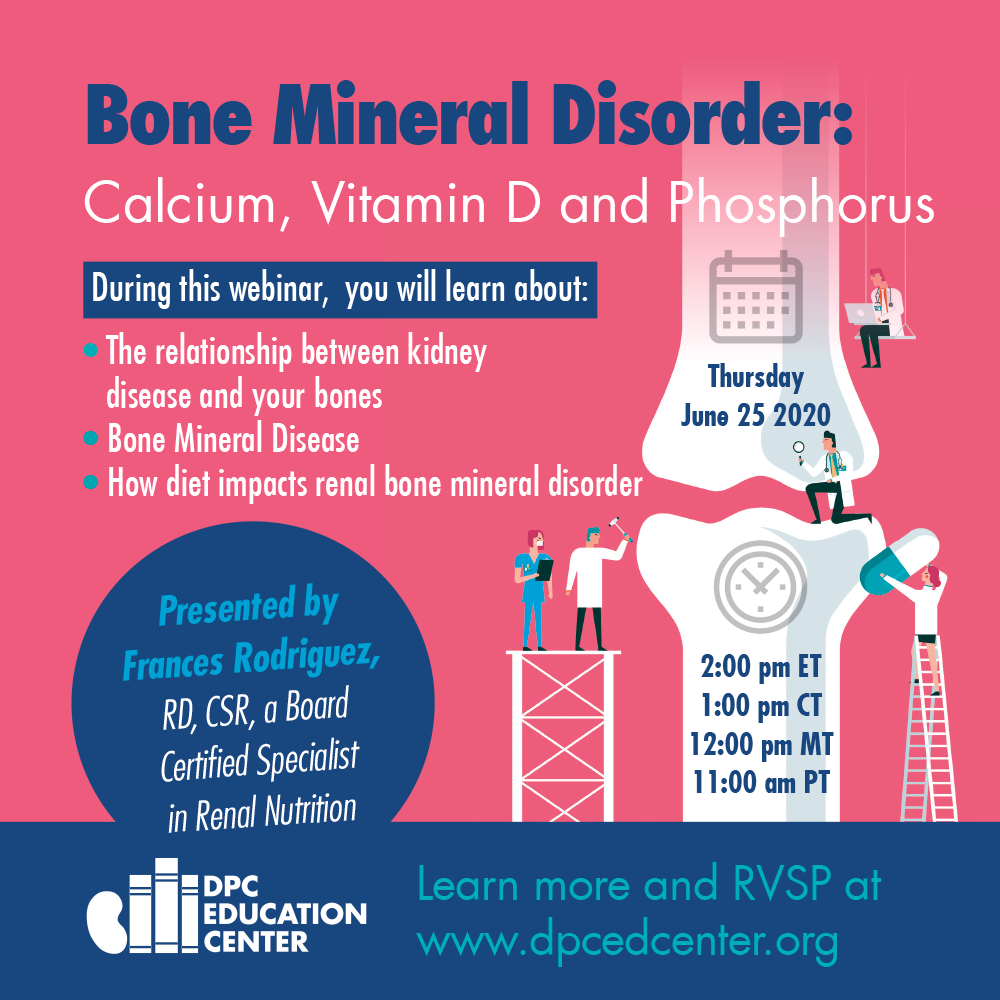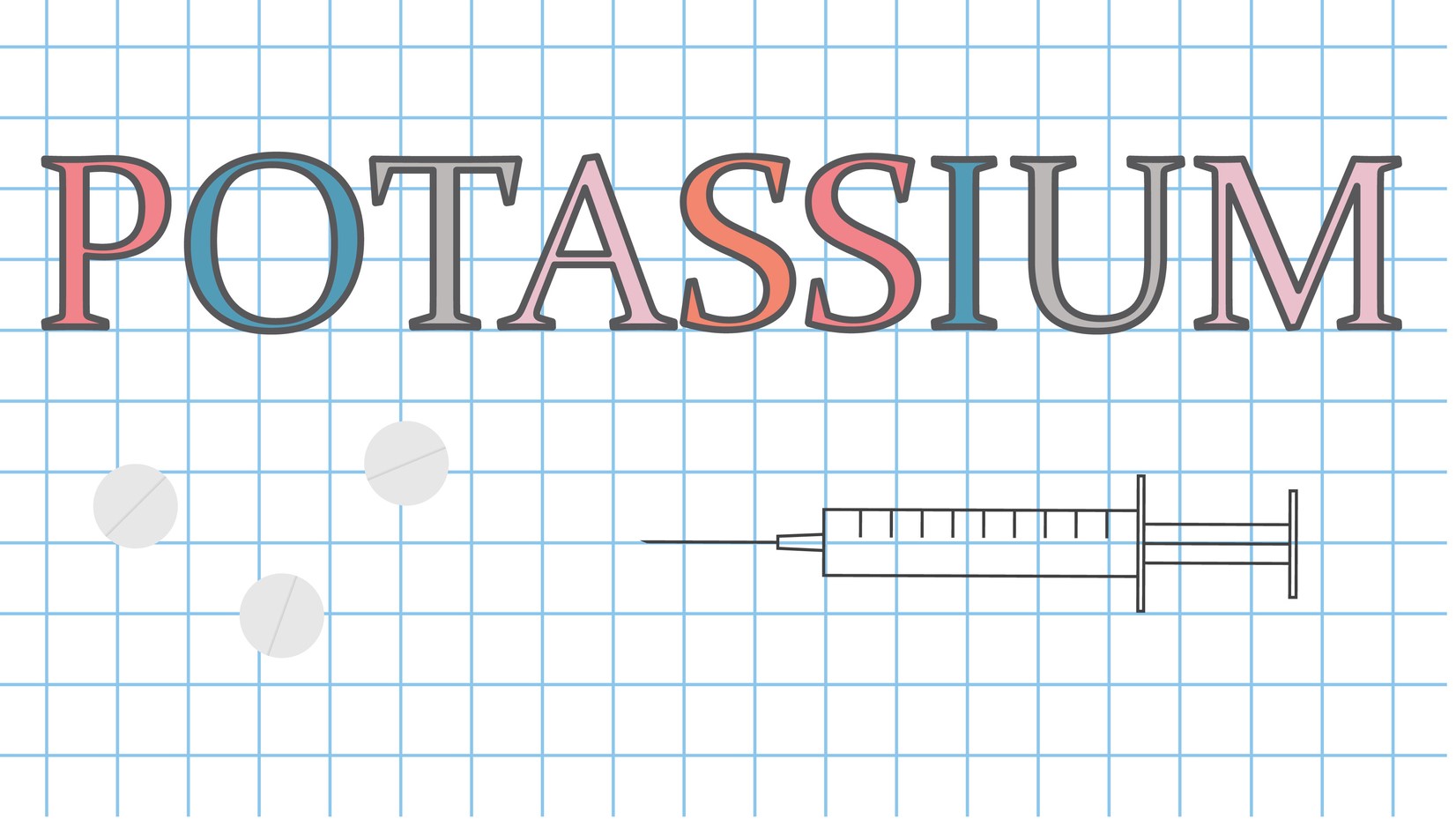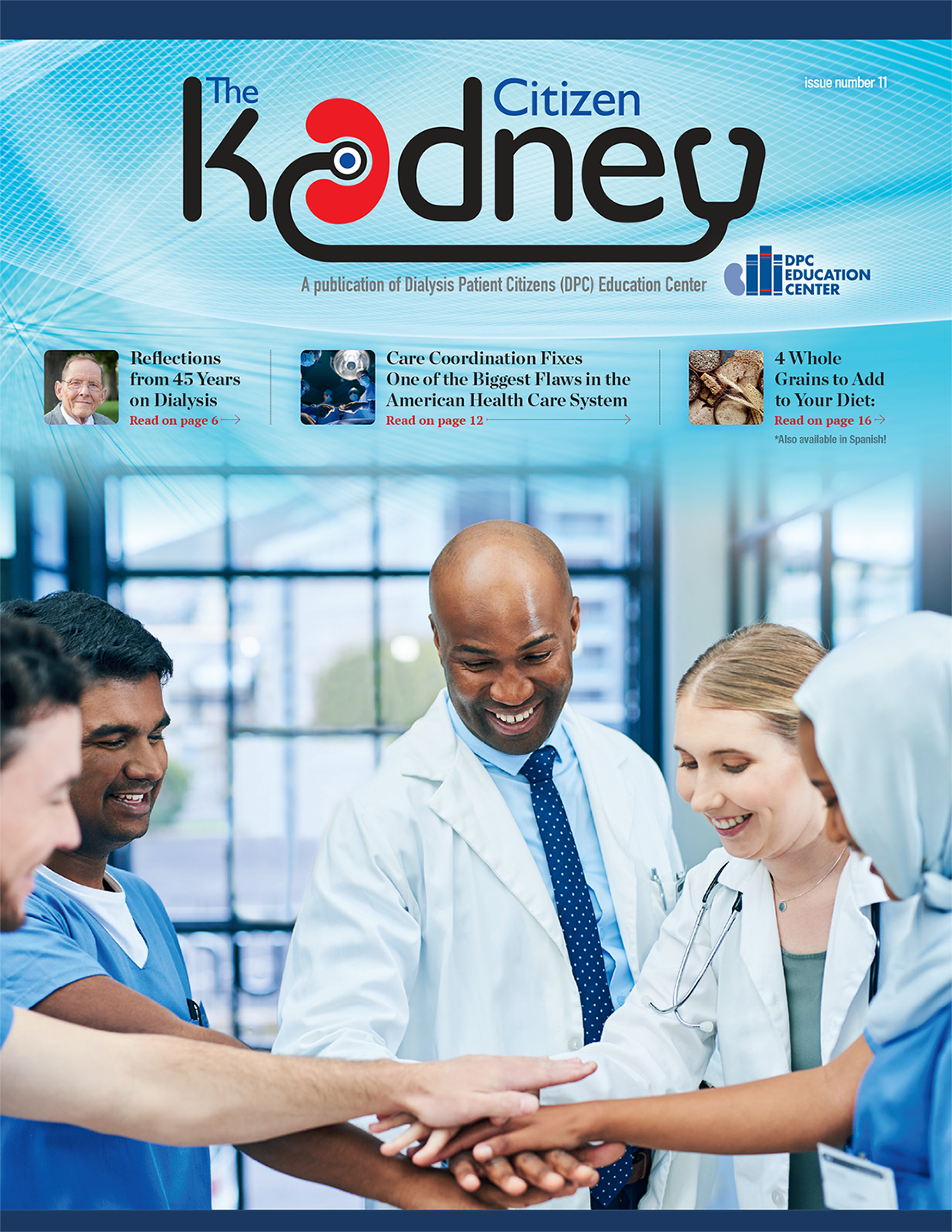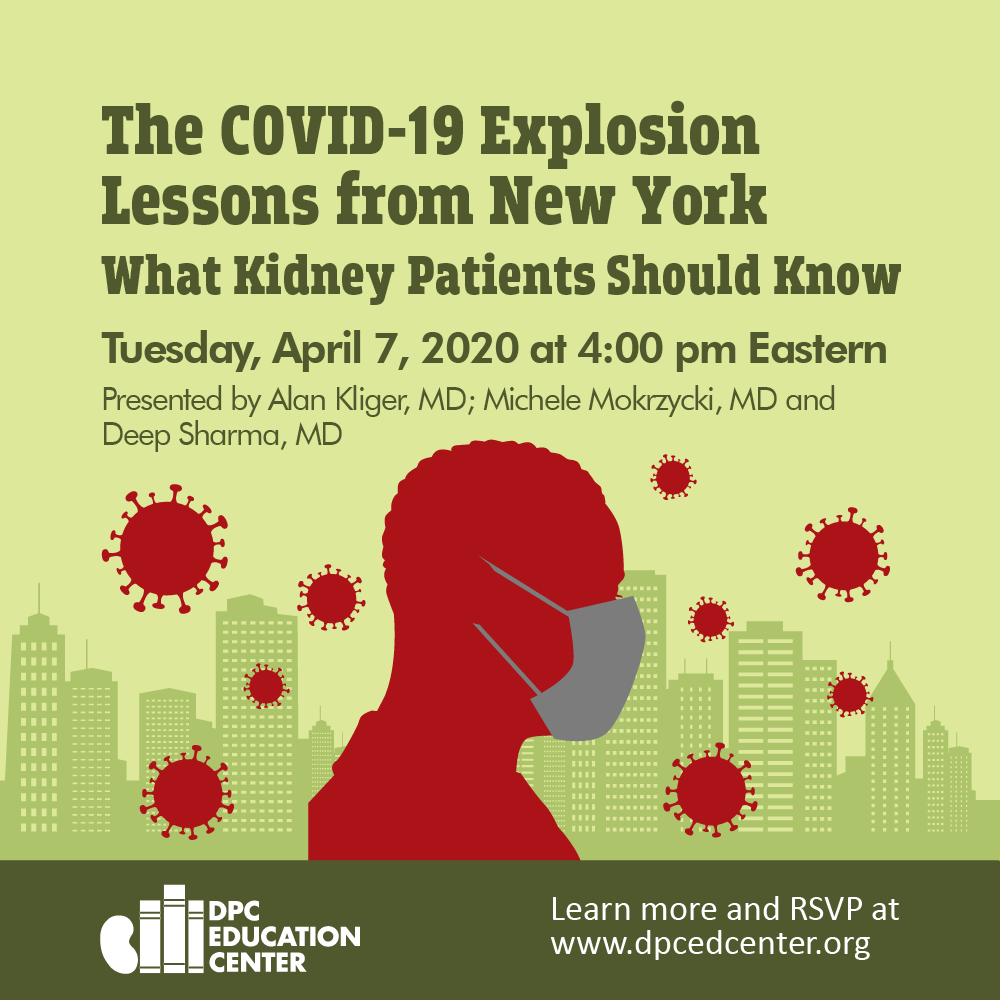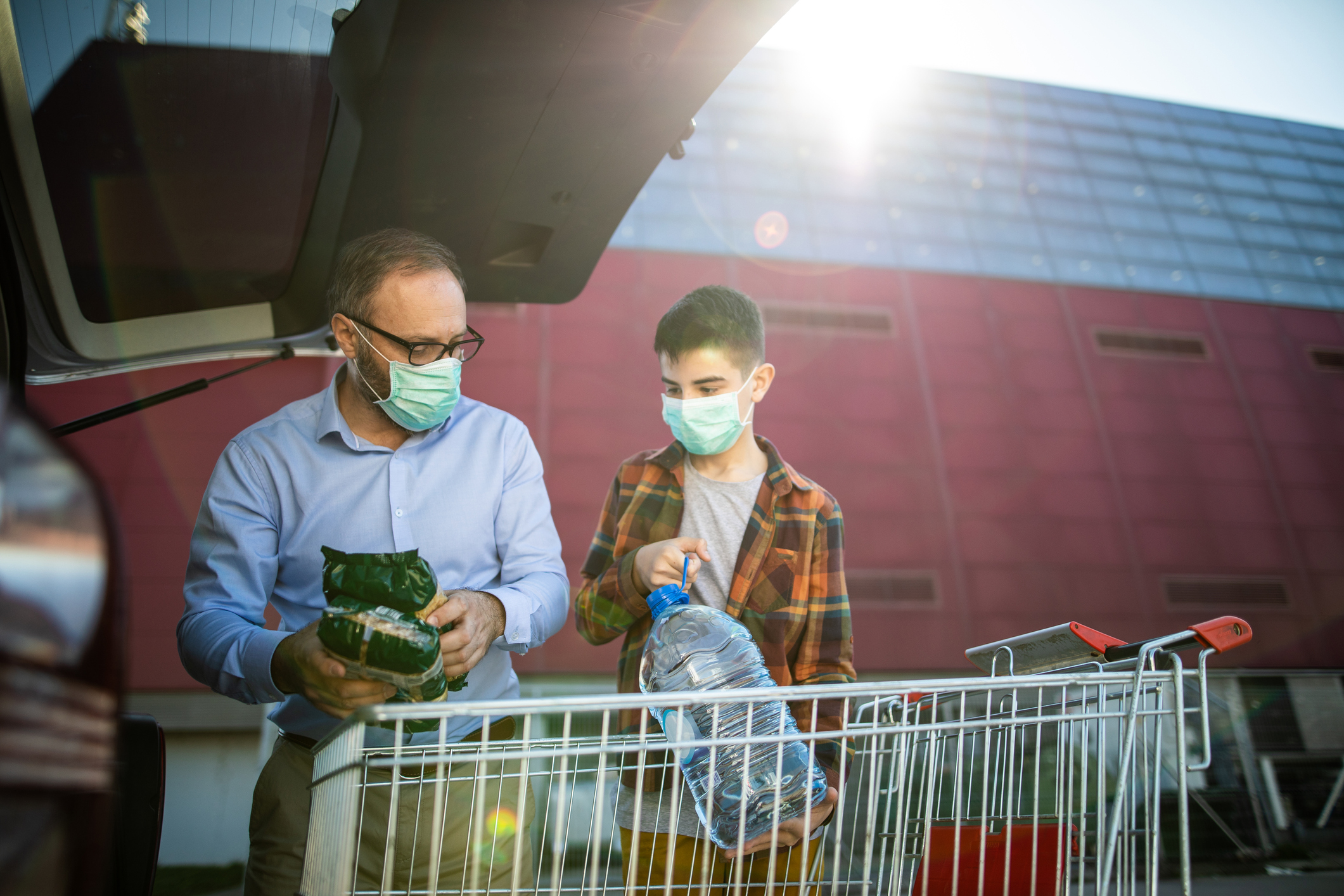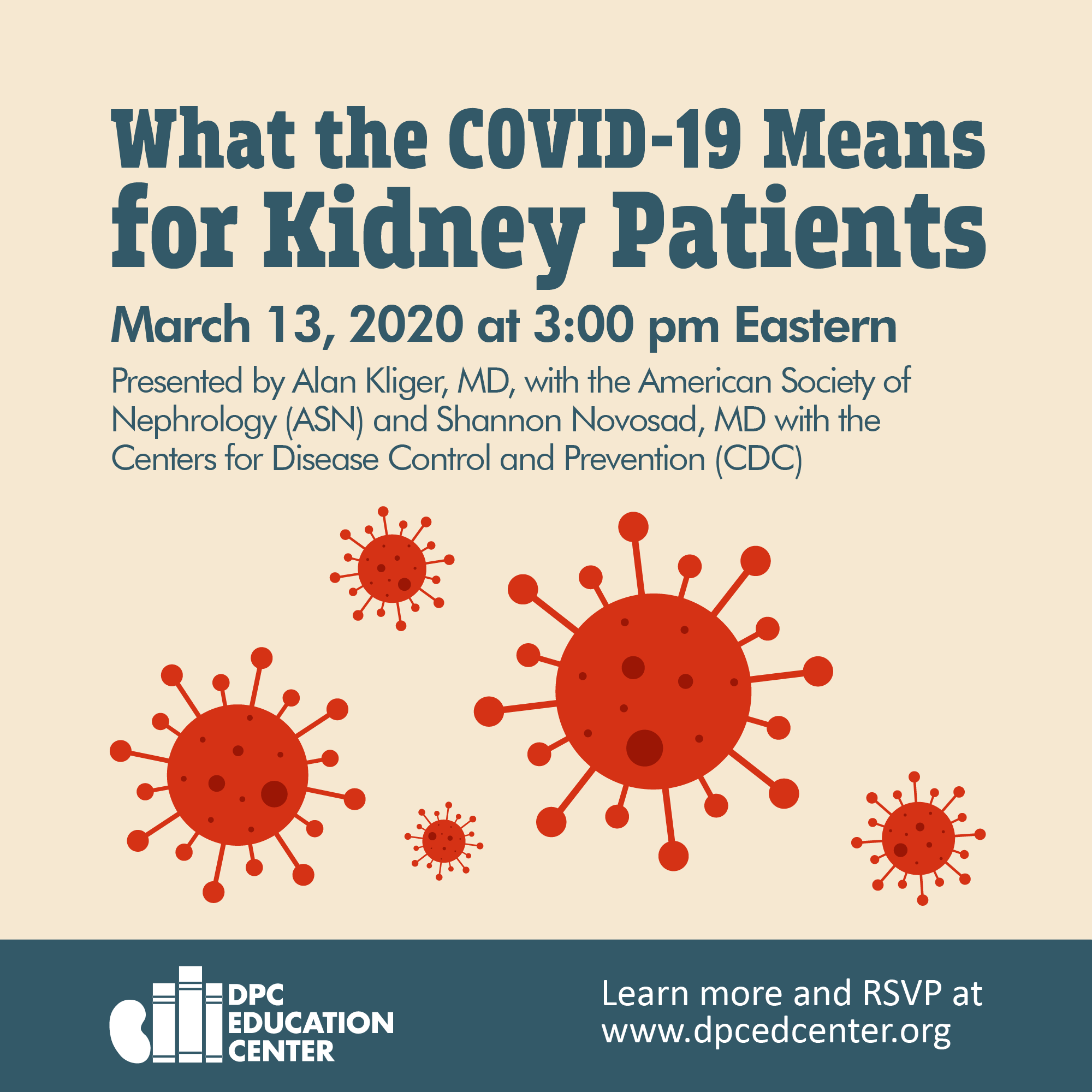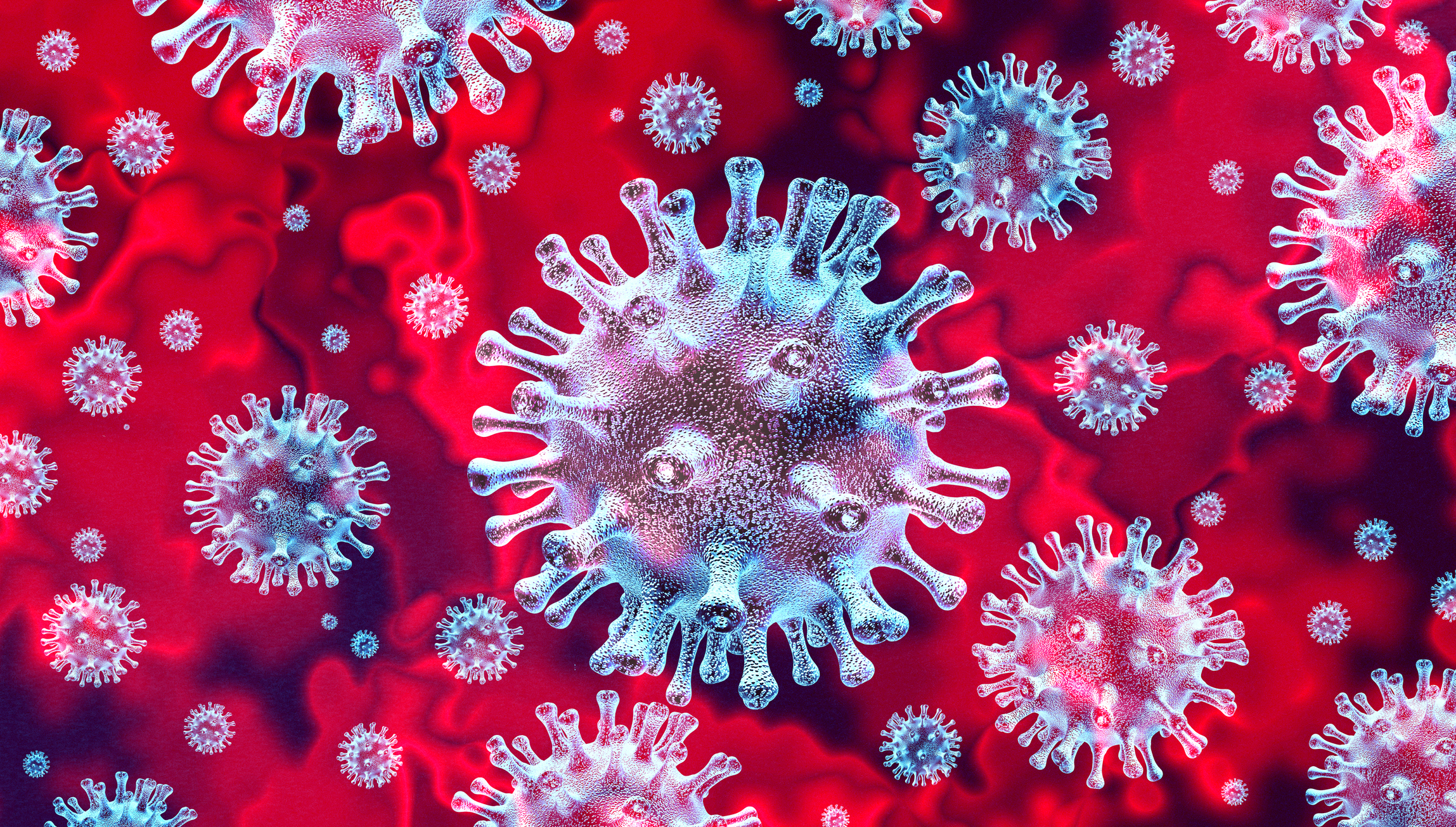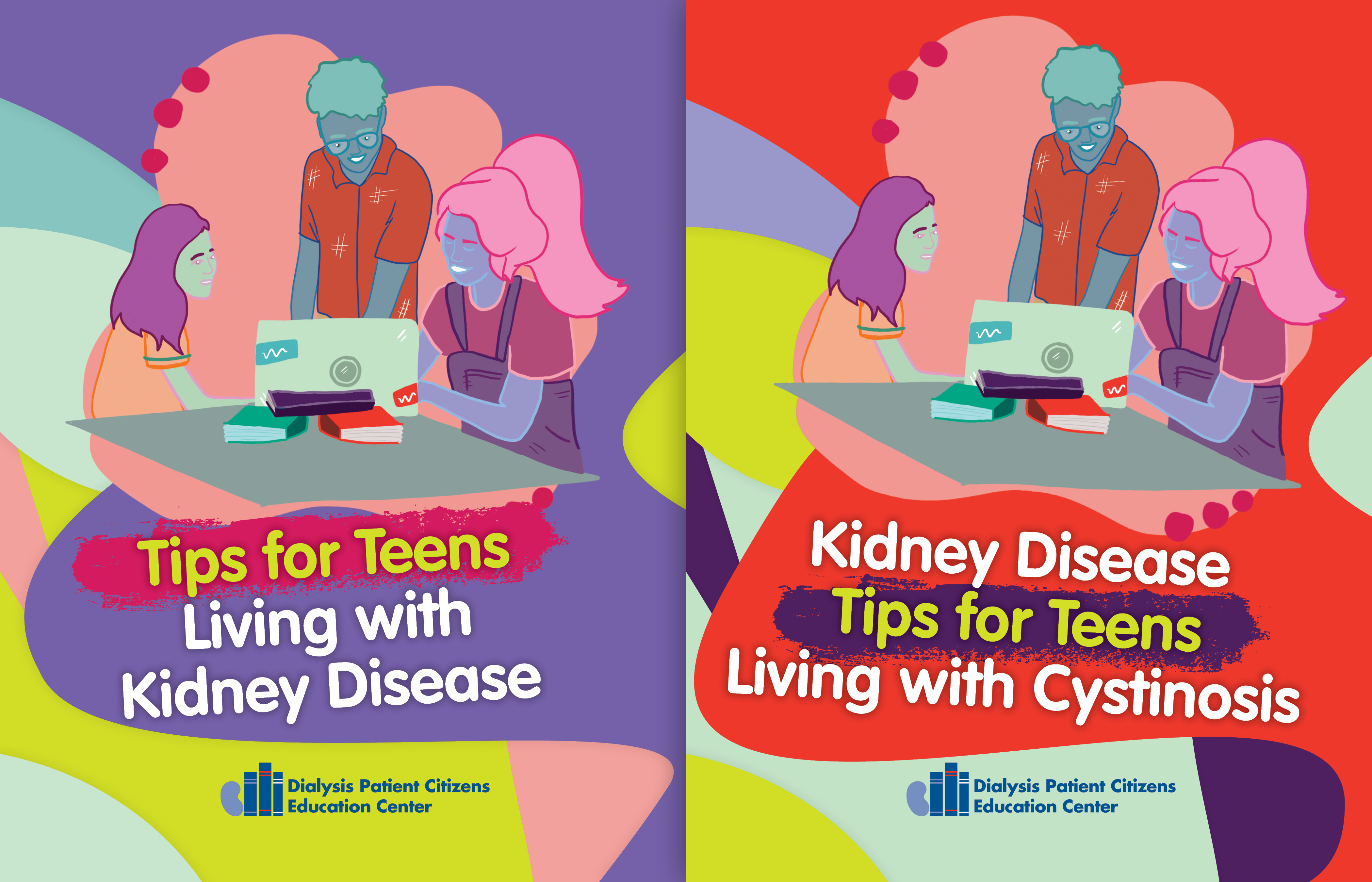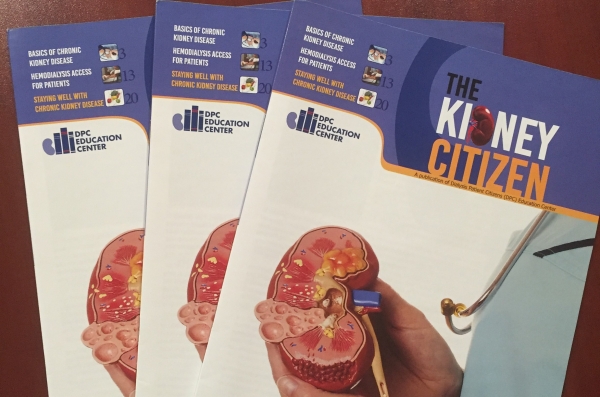News & Events
Discover new information and educational offerings that we provide. Explore our newsletters, blogs and upcoming webinars/conference calls.
Contents:
Identifying Sepsis Risk and Symptoms
By Marijke Vroomen Durning, RN People who live with kidney disease are more susceptible to contracting infections than the general public. A weakened immune system, frequent hospital or clinical visits/stays, and possible points of entry for infection (catheters, ports, etc.) all contribute to this increased risk. Unfortunately, some of these infections can lead to sepsis, which can be life altering, even fatal for thousands of people. Sepsis is your body’s inflammatory response to an infection. It can be any type of infection—viral, as with influenza; bacterial, as with a urinary tract infection (UTI); even fungal or parasitic. No one knows why two people may get the same infection, but one may develop sepsis while the [...]
Is a Transplant Right for Me?
During this webinar You will learn about 1) The risks vs benefits of a transplant, 2) The choice of a deceased vs living donor, 3) How to find a living donor, and 4) Tips from patients’ own transplant experiences.
4 Cereales integrales para incorporar en tu alimentación
Por María Eugenia Rodríguez León, MS, RD, CSR, LND, Nutricionista Dietista Licenciada https://menutritionpr.com Una de las recomendaciones para llevar una alimentación saludable es que la mitad de los cereales y farináceos que comemos sean integrales. Se ha demostrado que los cereales y farináceos integrales ayudan en la prevención de algunas enfermedades (ej. diabetes, cáncer, alta presión y enfermedades cardiovasculares).1 Un grano integral tiene las tres partes originales de la semilla: salvado, germen y endospermo.2 Salvado: es la parte comestible del exterior de la semilla. Contiene antioxidantes, vitaminas del complejo B y fibra. Germen: es el embrión de la semilla. Es la parte que tiene el potencial de convertirse en una planta nueva. Contiene vitaminas [...]
4 Whole Grains to Add to Your Diet
By María Eugenia Rodríguez León, MS, RD, CSR, LND, Registered Dietitian Nutritionist https://menutritionpr.com One of the recommendations given for following a healthy diet is choosing half of your daily grains as whole grains. Whole grains can help in preventing some diseases (e.g., diabetes, cancer, high blood pressure and heart disease).1 A whole grain has the three original parts of the seed: bran, germ and endosperm.2 Bran is the edible part surrounding the seed. It contains antioxidants, B vitamins and fiber. Germ is the seed embryo. It is the part that has the potential to become a new plant. It contains B vitamins, protein, minerals and healthy fats. Endosperm is the germ's food. It is [...]
Spoon-Saving Strategies
By Sara Naveed Raise your hand if getting out of bed feels like an accomplishment to you, if you have ever felt the need to nap after taking a shower or if being tired feels like it's a part of your personality now! How about constantly finding yourself in a push/crash cycle—pushing way past your limit one day and then paying the price for it in the form of heightened symptoms and having to rest several days in order to recover? Don't worry—you're not the only one! We currently live in an era where we are constantly fed the narrative that our self-worth is based on our productivity. So it's only natural to want to [...]
Managing Chronic Pain in Dialysis Patients
By Amanda Nelli, MD and Padma Gulur, MD Pain is a complex symptom and a common concern for all patients with a chronic illness. In particular, end-stage renal disease (ESRD) poses unique challenges. It has been found that 37-50 percent of patients with ESRD on hemodialysis experience chronic pain, and more than 80 percent of these patients experience moderate to severe pain.1 Pain in dialysis patients often goes undertreated, which may be because it is often caused by multiple problems. The pain experienced in dialysis patients is often a combination of physical, social and psychological influences.2 There are multiple medical causes of pain in the dialysis population, including complications related to diabetes, underlying arthritis, [...]
Are You Scared or Anxious about COVID-19?
Updated September 10, 2020 We are living in a time of uncertainty with the COVID-19 pandemic, which can lead to stress, fear, depression, and anxiety. We may feel overwhelmed at times and bored at other times. We may be at a loss for how to cope with social distancing, not seeing friends and family, and the possibility of getting sick. If you are a dialysis patient, receiving treatment either in-center or at home, your facility social worker is a great resource for you. Or, if you are a transplant patient, you can talk to your transplant social worker for support. You have people who can help you through this challenging time, either at your [...]
Bone Mineral Disorder: Calcium, Vitamin D and Phosphorus
During this webinar, you will learn about: 1) The relationship between kidney disease and your bones, 2) Bone Mineral Disease and 3) How diet impacts renal bone mineral disorder.
Advancing Care Coordination for Dialysis Patients: An Update
By Jackson Williams, Vice President of Public Policy, Dialysis Patient Citizens Efforts to modernize the delivery of quality care to dialysis patients reach several milestones in 2020: Medicare’s first care coordination program for kidney care, the Comprehensive ESRD Care Model, expires at the end of this year; providers have been invited to participate in a new program, the Comprehensive Kidney Care Contracting Model; end-stage renal disease (ESRD) patients will, in October, for the first time have access to their choice of Medicare Advantage plans effective January 1, 2021; and a new bill is being introduced in Congress to create another integrated care option for kidney patients. Why Care Coordination? Most dialysis patients are served by [...]
Treatment of Hyperkalemia in Dialysis Patients
Hyperkalemia is a potentially life-threatening electrolyte disorder and is more often seen in people who have End Stage Kidney Disease than the general public. For people WITHOUT kidney failure, potassium, an important mineral within the body, helps regulate fluid balance, muscle contractions and nerve signals. When people eat more potassium than their body needs, the kidneys filter and excrete out any extra through the urine. However, when the kidneys do not work, potassium can build up in the blood and cause hyperkalemia/high potassium. You can learn more about foods high in potassium and hyperkalemia in Issue 10 of our patient newsletter, The Kidney Citizen. You also can learn more about the basics of kidney disease [...]
Reflections from 45 Years on Dialysis
By Jack Reynolds, DPC Board Member I have survived on in-center hemodialysis for the last 45 years. I have also received Medicare for all those years to pay for most of my dialysis and other medical needs. I currently reside outside the village of Palmyra, Iowa. One of the first group of Patient Ambassadors to advocate in Washington, D.C. in 2005, I have visited Capitol Hill many times since. Because of the cost, time and effort it takes to keep a kidney patient healthy, I feel that it is important to be aware of issues and legislation that can impact our choices of treatment modalities, drugs or medical insurances. Diagnosis Kidney replacement therapy. Those three [...]
The Kidney Citizen Issue 11
An article in Spanish; reflections on 45 years on dialysis; care coordination; 4 whole grains to add to your diet; and more!
Beyond Sanitizing and Social Distancing–A Healthy Circadian Rhythm May Keep You Sane and Increase Resilience to Fight COVID-19
By Satchin Panda, University of California San Diego Social distancing and washing hands have become the frontline in the fight against COVID-19, but there is another powerfully protective resource immediately available to all: your circadian rhythm. I head a lab that researches circadian rhythms, the daily cycles of bodily functions that form the foundation of good health. These body clocks, found in nearly every organ of the body and part of the brain, are central and vital to a properly functioning immune system. A synchronized circadian rhythm in the lungs, heart, kidney and brain ensures that the processes in our body go as planned while the immune system can effectively fight and defeat a [...]
Connect with the DPC Ed Center on Social Media
The DPC Ed Center is now on Instagram and LinkedIn! Be sure to follow us to learn about our latest webinars, online courses, education materials, resources and more. In addition to these platforms, you can also find us on Facebook, Twitter and YouTube. Use the links below to get started: Instagram LinkedIn Facebook Twitter YouTube
The COVID-19 Explosion—Lessons from New York—What Kidney Patients Should Know
During this webinar you will learn the latest on: 1) What kidney patients need to do (dialysis & transplant), 2) What dialysis facilities are doing and 3) What we can learn from New York’s COVID-19 experience.
COVID-19 Resources for Dialysis Patients
Updated May 6, 2020 Earlier this month the President signed the “Families First Coronavirus Response Act,” which is a bill that will increase funding to several federal programs in response to the COVID-19 viral outbreak. The bill aids Americans in the areas of healthcare (including COVID-19 testing), nutrition, paid sick leave, unemployment, family and medical leave, and more. Below is a list of resources for dialysis patients to help them get additional support during the COVID-19 viral outbreak and beyond. Resource topics include: disability, financial assistance, nutrition, healthcare, housing and utilities, jobs, transportation, women and children, daily living, and staying safe. In addition, visit your state department of health website for COVID-19 information that [...]
Dialysis–A Gift for Me
Irwin Dunsky By Irwin Dunsky I found out my kidneys were disintegrating about seven years ago. They were working about thirty-five percent. I stated watching some of the things I was eating and a year later they were at thirty percent. My doctor told me that soon I would have to get a new kidney if I didn’t watch it. My kidneys kept going down, and four years ago they reached twenty percent functioning. I went to three hospitals to get on a kidney transplant list. They all told me that my heart was a risk factor that they wouldn’t take. My kidneys finally went down to fifteen percent. Then three and a [...]
What the COVID-19 Means for Kidney Patients
Learn about COVID-19 and what you and your family can do to protect yourselves. You will also learn about the CDC’s guidance for dialysis facilities and how your facility staff is working to prevent the spread of infection. Presented by: Alan Kliger, MD, with the American Society of Nephrology (ASN) and Shannon Novosad, MD with the Centers for Disease Control and Prevention (CDC) About the Presenters: Shannon Novosad, MD, MPH is a Medical Officer with the Dialysis Safety Team in the Division of Healthcare Quality Promotion (DHQP) at the Centers for Disease Control and Prevention. Dr. Novosad received her medical degree from the University of Alabama at Birmingham (UAB). In 2015, Dr. Novosad came to CDC [...]
Coronavirus Disease (COVID-19) Information for Dialysis Patients
Updated 3/26/2020 Coronavirus disease 2019 (abbreviated COVID-19) is a new respiratory virus spreading to the United States. Although the health risk is low in this country at this time, we know that people who have chronic illnesses, weakened immune systems and/or are over the age of 60 could pose an increased risk if they develop the disease. That said, it is not a time to panic, but rather a time to use procedures that help prevent the flu, coronavirus and other infections. Prevention A great prevention tip is to avoid getting or sharing germs that can cause infections. Here are some ways to practice this tip. Wash your hands. It is one of the [...]
New Resources for Teens
These booklets were developed for tweens and teens who learn their kidneys are not working and they will need dialysis or a transplant. The booklets provide a brief overview of coping with kidney disease, being part of their health care team, the importance of diet, taking medication, and treatment methods. They also touch on feelings related to having a chronic illness, family and friends, and being a teen. The development of both booklets included input from kids currently on dialysis, parents, adults who had kidney disease as children, and nephrologists. Although both booklets are similar, one focuses on teens who learn they have kidney disease and the other is for teens who already have cystinosis [...]


